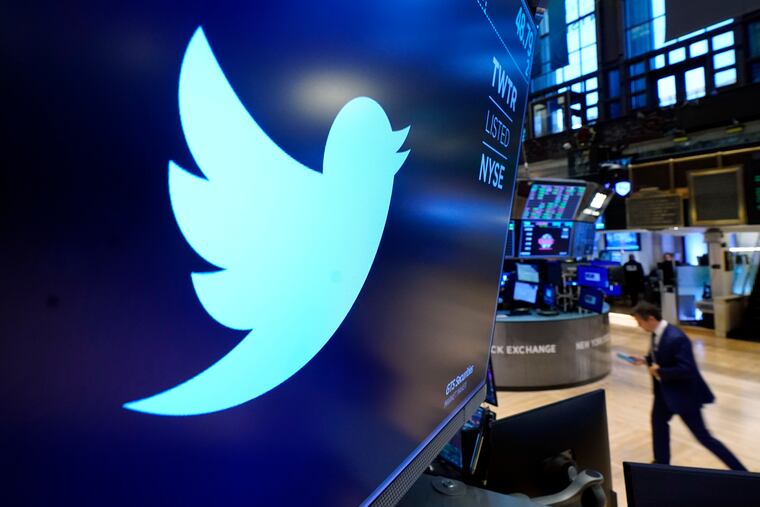Elon Musk is trying to back out of a $44 billion deal to buy Twitter — and a Delaware court will oversee the legal battle
We explain why Elon Musk v. Twitter is happening in the First State.

Twitter’s tiff with Elon Musk is officially heading to court, with the social media giant filing a lawsuit against the high-profile billionaire in hopes of forcing Musk to buy the company. But rather than happening in California, where Twitter is headquartered, the legal battle will be playing out a little closer to home: in Delaware.
But why?
On Tuesday, Twitter filed its lawsuit against Musk in the Delaware Court of Chancery, a centuries-old court that deals with corporate litigation. In the suit, Twitter accuses Musk of “having mounted a public spectacle to put Twitter in play” over the last several months, and says that he now refuses to honor his obligation to stick to a $44 billion purchase.
“Musk apparently believes that he — unlike every other party subject to Delaware contract law — is free to change his mind, trash the company, disrupt its operations, destroy stockholder value, and walk away,” the suit alleges.
Strong words. But we’re mostly interested in the “subject to Delaware contract law” part.
So, why Delaware?
Despite being headquartered in San Francisco, Twitter as a company is actually registered in Dover, Del., and incorporated there in 2007. And while it might sound strange that one of the biggest social media companies in America is registered in Philly’s own backyard, it’s hardly unique. Musk himself has a number of companies incorporated there, including Tesla and SpaceX.
There are more than 1.8 million companies registered in Delaware, with the First State adding more than 336,000 businesses entities to its ranks in 2021 alone, according to the Delaware Division of Corporations. To put that into perspective, the entire population of the state is about 990,000 people, per data from the 2020 U.S. Census.
And it’s not just that there are a lot of companies registered in Delaware — there are lot of big ones, too. Of the companies that make up the Fortune 500, about 66.8% are incorporated in the First State, and some 93% of all U.S. initial public offerings in 2022 so far have been registered there, according to the division.
It’s also not a coincidence the state is home — legally speaking — to so many entities. Delaware is famously a favorite for incorporation, thanks to its advantageous corporate tax and privacy laws, high volume of corporate case law, and its reputation for settling corporate disputes through, you guessed it, the Delaware Court of Chancery.
What is the Delaware Court of Chancery?
The Delaware Court of Chancery dates back to 1792, and has courthouses in Wilmington, Dover, and Georgetown. The court notes that its litigation “consists largely of corporate matters” and “commercial and contractual matters in general.”
Unlike most courts, it is considered a “court of equity” rather than a “court of law” — a distinction that, like the Court of Chancery, traces itself to traditional English courts. Essentially, many other courts hear cases that center on awarding monetary damages, while courts of equity like the Court of Chancery deal with solutions that aren’t strictly monetary — such as injunctions and other resolutions, which is what Twitter is seeking in its suit.
The social media company wants the Court of Chancery to order Musk — as well as codefendants X Holdings I and X Holdings II, which are businesses he started in relation to his Twitter takeover — to carry out the deal he and Twitter agreed upon.
The Court of Chancery also functions differently from other courts, in that it focuses on case law rather than statute law, and that it resolves disputes with trials by judge rather than by jury. But, the court notes, if “issues of fact” arise that need to be tried by a jury, it can “order such facts to trial” at the state Superior Court.
And, makeup-wise, the court consists of one chancellor — essentially the chief judge — and six vice chancellors. All seven are nominated by the state’s governor, and confirmed by the state Senate, after which they serve 12-year terms.
How long is the Twitter suit going to take?
That’s anybody’s guess. But, generally, the Delaware Court of Chancery is known in legal circles for being more expeditious than other courts, and in a follow-up filing, Twitter asked the court for a four-day trial starting on Sept. 19. Initially, the pair agreed to complete the sale on Oct. 24.
Musk, meanwhile, has a 20-day time frame to respond to the suit, per Delaware law — but Twitter’s legal team would like a response by Monday.
Musk has appeared before the Court of Chancery before. In the case regarding Tesla’s acquisition of SolarCity, the trial itself happened in July 2021, but the judge’s verdict wasn’t released until April this year — a nine-month wait.
The court, however, has ruled on a number of high-profile mergers and acquisition disputes over the years. In 2001, Tyson Foods was required to buy meat producer IBP, noting in a ruling that the company was experiencing “buyer’s regret.” In 2008, a merger case between chemical companies Hexion Specialty Chemicals and Huntsman Corp. resulted in a $1 billion settlement.
And, in 2018, the court allowed health care outfit Fresenius to back out of its $4.75 billion purchase of Akorn Inc., a pharmaceutical company, after a drop in Akorn’s finances — the only Delaware Court of Chancery case in which a buyer successfully backed out of a deal due to a material change in the company it was acquiring, Bloomberg Law reports.
You can read Twitter’s suit against Musk below: